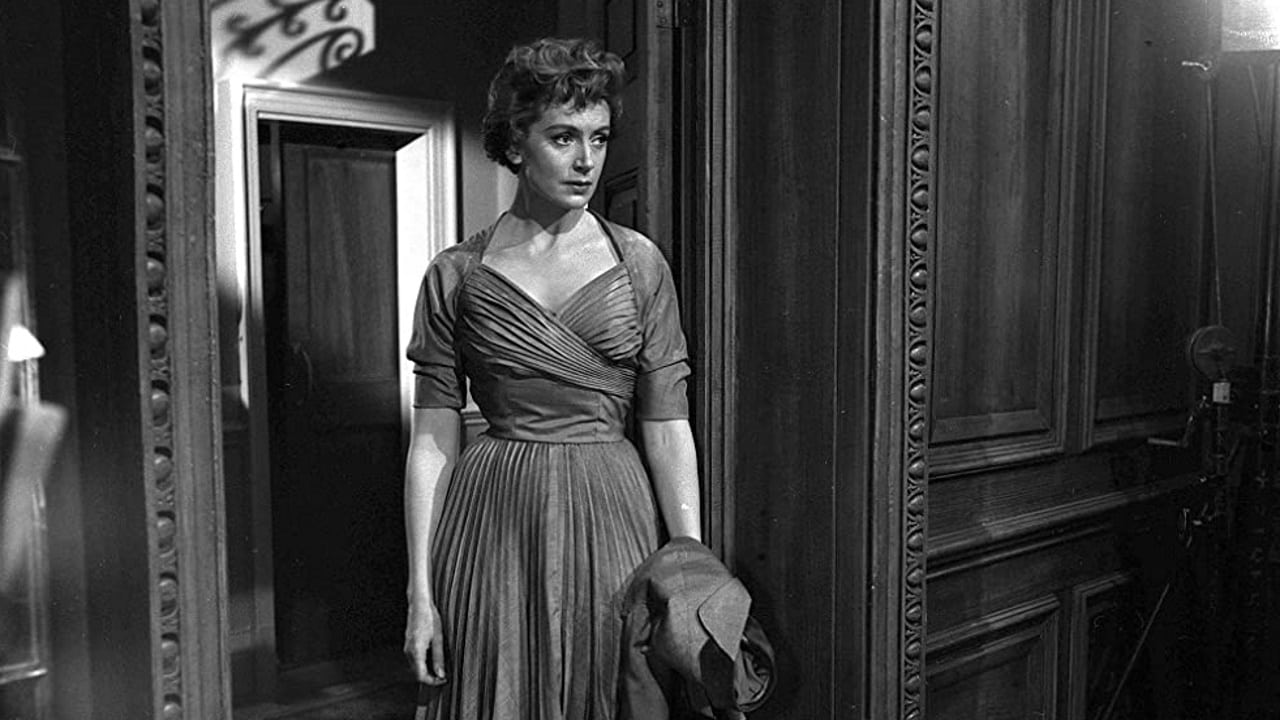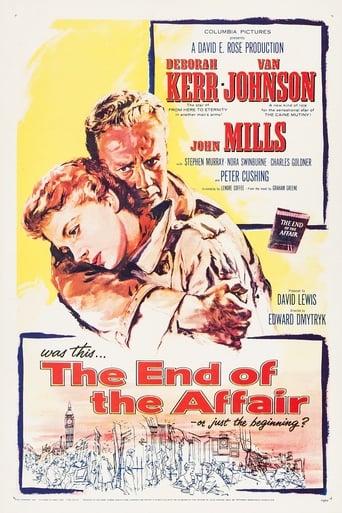

An action-packed slog
... View MoreThe film creates a perfect balance between action and depth of basic needs, in the midst of an infertile atmosphere.
... View MoreThere is, somehow, an interesting story here, as well as some good acting. There are also some good scenes
... View MoreAll of these films share one commonality, that being a kind of emotional center that humanizes a cast of monsters.
... View MoreDuring WW2, Deborah Kerr falls in love with a soldier. The only trouble is, she's already married to Peter Cushing, and her husband is friends with her lover, Van Johnson. As evident by the title, Deborah and Van's love affair ends, but the question remains as to why. This film was remade in 1999, but I prefer the original version, since I find Deborah Kerr more likable than Julianne Moore. Also, even though John Mills isn't the lead in the 1955 version, he classes up any movie he's in, so that's also a bonus to watching the original. I won't spoil the plot and tell you the reason behind The End of the Affair, but I will say the film focuses on a range of emotions that coincide with infidelity: guilt, resentment, hope, and fear. There's also a strong religious element to the film, one that really makes you think after the movie's over. In a way, it's more of a thoughtful film than a romance. While this isn't a very good choice to watch with your sweetie pie, feel free to watch it by yourself and think about what really matters in life.
... View MoreI found this to be a very interesting film on several levels.First, Deborah Kerr is wonderful, as she almost always was. What a consummate actress. But, once again, Van Johnson surprises me. Only recently have I begun to realize what an underrated actor he was. I think most of us think of him in musical comedies, but he could be a very good dramatic actor, as well.Second, the characters here are very real. And not necessarily likable. Johnson comes across in the most unflattering light...the other man...who knows the affair is wrong, but who cannot resist it. Kerr comes off a little better...at least part of the time...but other times she comes off as the woman who seems almost indifferent to the fact that she is having an affair. We get to see Peter Cushing before he turned to horror flicks...as the wronged husband, and a very good performance. And John Mills has a curiously small (yet key) role as a private investigator...and a very nice performance, if a bit oddball.Highly recommended in addition to the more recent version.
... View MoreImagine me saying that a Van Johnson, Deborah Kerr film was awful. It's true folks. This was one miserable film.In war ravaged England the two of them begin an affair only for Ms. Kerr to end it in thanks to the Lord when Maurice (Johnson) survives a bombing.The two of them engage in absolute endless talk. The film falls into a discussion regarding the lord and all other kinds of philosophy. Kerr gives an emotionally restrained performance in her usual sing-song diction.As Sarah in this film, there is no great chemical reaction between her and Maurice.As her suffering husband, an English civil servant, Peter Cushing is adequate but the dialogue is ridiculous.John Mills is real dead pan as an investigator.When a husband hires a detective to investigate a cheating wife, that can be believed. When a former lover does this, you have to wonder.Am wondering if Van Johnson was using this film as a pre-test to the much better "Miracle in the Rain" which occurred the following year. Two deaths coming during rainstorms is more than quite incidental.
... View MoreThe two lovers in this picture who were having an affair, namely: Deborah Kerr, (Sarah Miles) and Van Johnson, (Maurice Bendrix) both bored me to death with their flashbacks about their so called love affair. The entire picture went around in complete circles along with bombs exploding in London during World War 11. The End of the Affair should have been over before it started, I doubt very much if this couple even enjoyed their so called sexual affair, the both acted way out of character and Van Johnson and Deborah Kerr were not suited for each other as actors in this film. It is a depressing horrible film and it really gave me a Headache to watch.
... View More